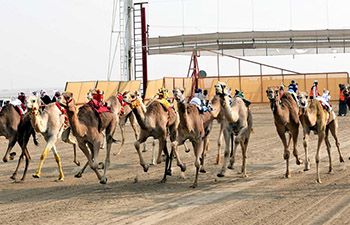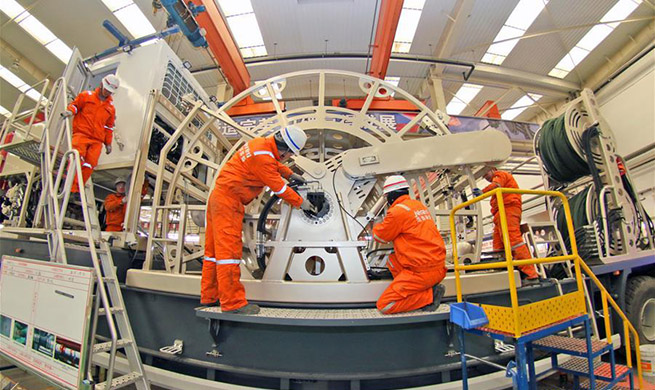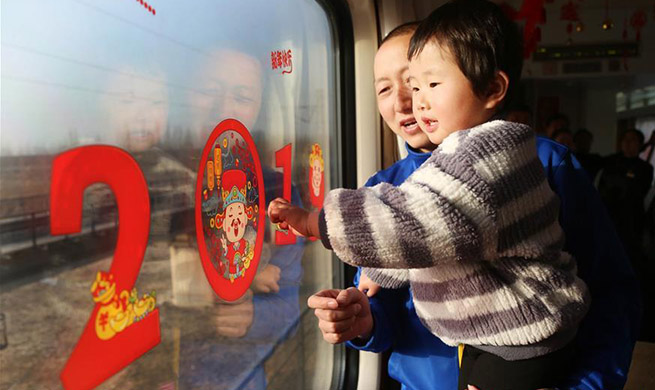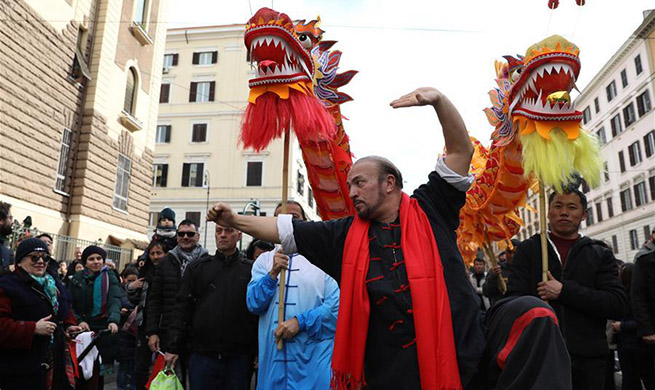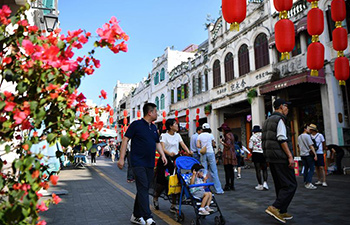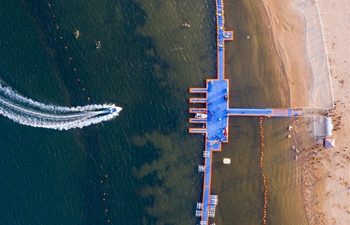PHNOM PENH, Feb. 11 (Xinhua) -- Cambodia is facing the risk of temporarily losing its non-tariff export privilege to the European market, as the European Union (EU) on Monday started the 18-month process under the Everything But Arms (EBA) trade scheme, according to its statement.
The European Commission, which coordinates trade policy for the 28-member EU, said in the statement that the decision will be published in the EU Official Journal on Feb. 12, kicking off a process that would run until August 2020.
The EU announced in October last year that Cambodia could lose its special trade access to European markets under the EBA preferences, citing concerns over human rights and labor rights issues in the country.
However, EU Commissioner for Trade Cecilia Malmstrom said: "It should be clear that today's move is neither a final decision nor the end of the process. But the clock is now officially ticking and we need to see real action soon."
"Our engagement with the situation in Cambodia has led us to conclude that there are severe deficiencies when it comes to human rights and labour rights in Cambodia that the government needs to tackle if it wants to keep its country's privileged access to our market," she said.
The process consists of a six-month period of intensive monitoring and engagement with the Cambodian authorities, followed by another three-month period for the EU to produce a report based on the findings, the statement said.
After a total of twelve months, the Commission will conclude the procedure with a final decision on whether or not to withdraw tariff preferences, it said, adding that any withdrawal would come into effect after a further six-month period.
The EU is a major trading partner of Cambodia, especially for textiles and footwear sector. As a Least Developed Country, Cambodia has enjoyed exports of all products, except arms and ammunition, to European markets with duty-free for decades.
According to the EU's data, Cambodia exported products to the bloc worth of 4.9 billion euros in 2018.
Ken Loo, secretary general of the Garment Manufacturers Association in Cambodia, said in a statement in October last year that over 46 percent of Cambodia's total exports of apparel and footwear were to the EU.
He said the garment and footwear sector employed around 700,000 workers and another two million out of the kingdom's total population of 16 million also economically depended on the sector.
"A temporary suspension of the EBA or any short-term unilateral sanctions may have long-term negative impacts on the lives of our workers and their families," he said.




